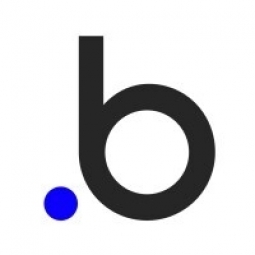Technology Category
- Infrastructure as a Service (IaaS) - Private Cloud
- Platform as a Service (PaaS) - Application Development Platforms
Applicable Industries
- Equipment & Machinery
- Marine & Shipping
Applicable Functions
- Maintenance
- Sales & Marketing
Use Cases
- Building Automation & Control
- Time Sensitive Networking
Services
- Cloud Planning, Design & Implementation Services
- Training
About The Customer
GoSaily is a web app that serves a community of sailing enthusiasts. It connects private sailboat owners to sailor crews through a two-way marketplace. The platform allows sailors and boat owners to start personal connections and become “friends”, share messages in their private chat, ask or offer advice about sailing gears and equipment, and post, reply, and comment on a brand-new community forum. The platform also allows users to post ads for boat rentals with or without a captain. The users of GoSaily are primarily private sailboat owners and sailors who are looking for a sailing experience or want to charter a boat without a captain.
The Challenge
GoSaily, a web app that connects private sailboat owners to sailor crews, was initially built with code in 2015. However, the founders, Stefano Failla and Paola Ginella, faced challenges in maintaining the platform due to high costs and time-consuming processes. The Italian sailboat market was relatively small, and GoSaily had to compete with well-funded competitors who were willing to invest heavily in web and social media marketing. The platform had gained a niche in the market, but the business model was not economically viable. The founders were looking for a solution that could reduce the running costs of the platform while maintaining the same number of features that GoSaily users already had. In 2018, due to personal reasons and lack of time, the founders decided to temporarily close GoSaily and switched to a simpler Wordpress site for promoting their local sailing activities.
The Solution
In 2017, the founders decided to convert GoSaily to a no-code platform using Bubble. Bubble offered advanced no-code functionality and the right architecture that allowed them to build their app and scale. It took them three months to rebuild all the features already existing in GoSaily. The platform was relaunched in 2020 with significant changes to the business model and many new features. Instead of following a two-sided marketplace model with complex money management activities, they switched to a basic subscription model where all user accounts were free of charge, and only boats listed had to pay a small fee for a yearly subscription. They also added features like an internal chat available for sailors “friends”, the friendship connections, the gear and equipment expert advice section, the crew ads, and the new sailor community forum.
Operational Impact
Quantitative Benefit

Case Study missing?
Start adding your own!
Register with your work email and create a new case study profile for your business.
Related Case Studies.

Case Study
Smart Water Filtration Systems
Before working with Ayla Networks, Ozner was already using cloud connectivity to identify and solve water-filtration system malfunctions as well as to monitor filter cartridges for replacements.But, in June 2015, Ozner executives talked with Ayla about how the company might further improve its water systems with IoT technology. They liked what they heard from Ayla, but the executives needed to be sure that Ayla’s Agile IoT Platform provided the security and reliability Ozner required.

Case Study
IoT enabled Fleet Management with MindSphere
In view of growing competition, Gämmerler had a strong need to remain competitive via process optimization, reliability and gentle handling of printed products, even at highest press speeds. In addition, a digitalization initiative also included developing a key differentiation via data-driven services offers.

Case Study
Predictive Maintenance for Industrial Chillers
For global leaders in the industrial chiller manufacturing, reliability of the entire production process is of the utmost importance. Chillers are refrigeration systems that produce ice water to provide cooling for a process or industrial application. One of those leaders sought a way to respond to asset performance issues, even before they occur. The intelligence to guarantee maximum reliability of cooling devices is embedded (pre-alarming). A pre-alarming phase means that the cooling device still works, but symptoms may appear, telling manufacturers that a failure is likely to occur in the near future. Chillers who are not internet connected at that moment, provide little insight in this pre-alarming phase.

Case Study
Premium Appliance Producer Innovates with Internet of Everything
Sub-Zero faced the largest product launch in the company’s history:It wanted to launch 60 new products as scheduled while simultaneously opening a new “greenfield” production facility, yet still adhering to stringent quality requirements and manage issues from new supply-chain partners. A the same time, it wanted to increase staff productivity time and collaboration while reducing travel and costs.

Case Study
Integration of PLC with IoT for Bosch Rexroth
The application arises from the need to monitor and anticipate the problems of one or more machines managed by a PLC. These problems, often resulting from the accumulation over time of small discrepancies, require, when they occur, ex post technical operations maintenance.

Case Study
Robot Saves Money and Time for US Custom Molding Company
Injection Technology (Itech) is a custom molder for a variety of clients that require precision plastic parts for such products as electric meter covers, dental appliance cases and spools. With 95 employees operating 23 molding machines in a 30,000 square foot plant, Itech wanted to reduce man hours and increase efficiency.



